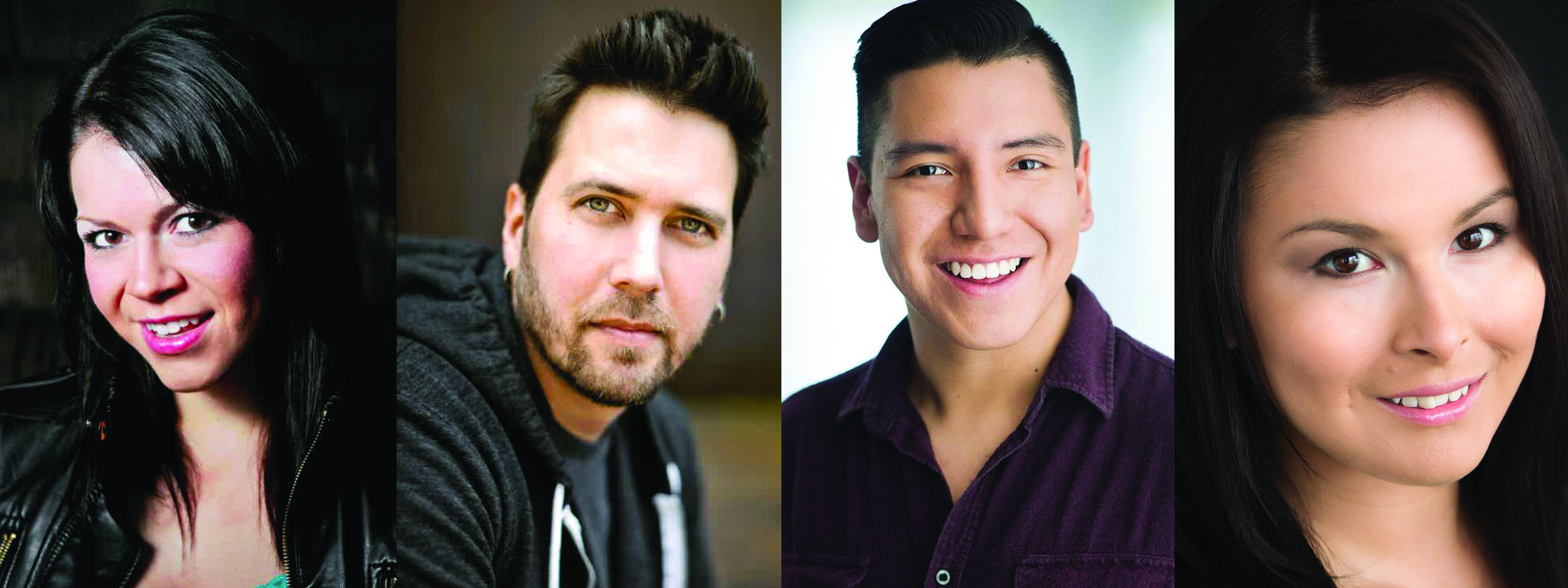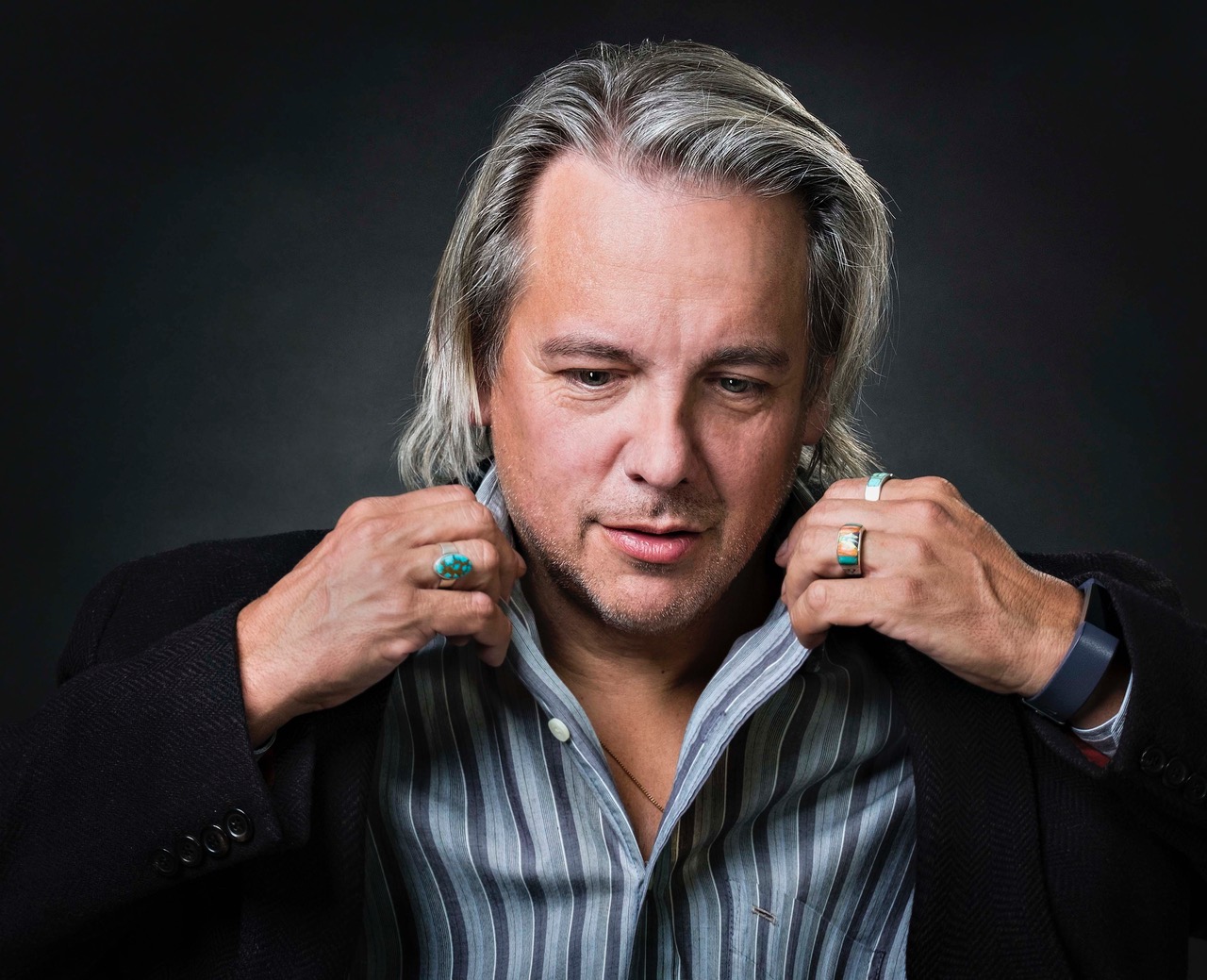The Canadian legacy of colonialism may be dark, messy and complicated, but Drew Hayden Taylor’s Only Drunks and Children Tell the Truth movingly blends that tragedy with humour and a stripped-down family drama.
The play, first produced in the early 1990s, makes its return to the stage at Vancouver’s Firehall Arts Centre this month, and finds two sisters mourning the death of their mother in very different ways. Janice, a lawyer living in Toronto, learns from her sister Barb that their mother has passed away on her Ojibway reserve at Otter Lake. Janice is hesitant to go back, having never quite come to terms with her heritage.
What unfolds is an intimate path towards reconciliation between two women who grew up apart, both victims in their own ways of Canada’s colonial project of erasing Indigenous cultures. Janice was taken from her home during the “’60s Scoop,” or “Scoop Up” — the practice by Canadian child welfare authorities to take Indigenous children from their families and communities and place them with white, Christian families where they were raised away from their birth families and cultures.
At a time when the legacy of residential schools and the Truth and Reconciliation Commission continue to make headlines, the play remains remarkably timely. The Tyee caught up with Taylor to discuss the play and its still-relevant message.

The Tyee: What initially led you to write Only Drunks and Children Tell the Truth?
Drew Hayden Taylor: My original inspiration started with a woman I had dated back in the early ’90s. She was adopted, and it became kind of obvious to me as I wandered amongst the urban Native community in Toronto when I moved here, that I was running into a lot of Native adoptees. Disproportionately more than non-Native adoptees, which puzzled me because of the ratio differences — there should be more white adoptees than Native adoptees.
Next, I found out about the Scoop Up. I had not heard of it. This was news to me. I was shocked. I was appalled. And I said, "Why didn't I know about this? Why don't other people know about this?"
I wrote a short story, and the story had resonance with a friend of mine who suggested, “Write it as a play.” I did. That was Someday. And at the end of it, Janice turns around and leaves after seeing her mother, seeing her sister, and one of the characters, Robbie, says, “Why are you leaving?” And she says, “I needed to put some faces on some dreams and I just needed to know where I came from and who these people were, and now I'm going back to my other family.” And so she leaves, and somebody mentioned that it gives the impression that reconciliation between adoptees and adopted family can't happen. And that wasn't my intention. I was just trying to say it can't happen in the 45-minutes of a second act. It's a long, drawn-out process.
So I decided to write another play about her actually making that first step to reintegrate with her family, and that became Only Drunks and Children Tell the Truth.
There's this very clear conflict between the sisters, and at first I thought one would represent colonialism and the other Ojibway culture, but it's so much richer and more complicated than that.
To me, this was not a story about a policy or about politics or about governmental racism. It is, but it isn't. What was much more interesting to me was the dynamics between the sisters, where it all hinges on the mother. The Scoop Up isn't even mentioned in this play because, as I said, I'm not interested in the political nature, I'm interested in the human relationships involved.
How have the decades since the Scoop Up impacted the subject matter?
I think the issues have become so much more prevalent. Recently, there were all these settlements made to those who were unfairly taken away for adoption, so it's become much more known and explained within the larger Canadian culture. Not as much as it should be, but at least it is a beginning.
There's a lot of witty dialogue, a lot of humour in the play despite the darker elements such as death and the legacy of the Scoop. How important is humour to you?
I've travelled to over 140 Native communities across Canada and the United States, and in every single one I've been greeted with a laugh, a smile and a joke. And to me that is the essence of the Native community. I think it's been our sense of humour that's allowed Indigenous people to survive the three- or four- or five-hundred years of colonization.
I am all about whacking the Indigenous funny bone.
Alongside that comedy, you dive into the reality of living in two worlds in a very specific context. That isn't necessarily relatable to everyone watching the play, but it's really not alienating either.
At some point in everybody's life, they have felt like the outsider. They have felt put upon. They have felt oppressed. They've felt not included. They have felt marginalized. While Native people have felt it on a national, cultural, universal level, everybody's felt something like that to some small extent. Using an old cliché, there are more similarities than there are differences.
What do you hope the audience in Vancouver takes away from Only Drunks and Children Tell the Truth?
When the audience leaves this theatre, I want them to have been entertained, I want them to have learned something, and I want them to have realized something. There's a difference between learning something and realizing something. Learning is a fact. Learning is an event. Learning is an object that you can store away and use. Realizing something has much more of an emotional, spiritual, psychological happening. When you realize something, it goes deeper.
Only Drunks and Children Tell the Truth premieres at the Firehall Arts Centre on Nov. 11 and runs until Dec. 2.
This interview has been condensed and edited for clarity. ![]()
Read more: Indigenous
















Tyee Commenting Guidelines
Comments that violate guidelines risk being deleted, and violations may result in a temporary or permanent user ban. Maintain the spirit of good conversation to stay in the discussion.
*Please note The Tyee is not a forum for spreading misinformation about COVID-19, denying its existence or minimizing its risk to public health.
Do:
Do not: